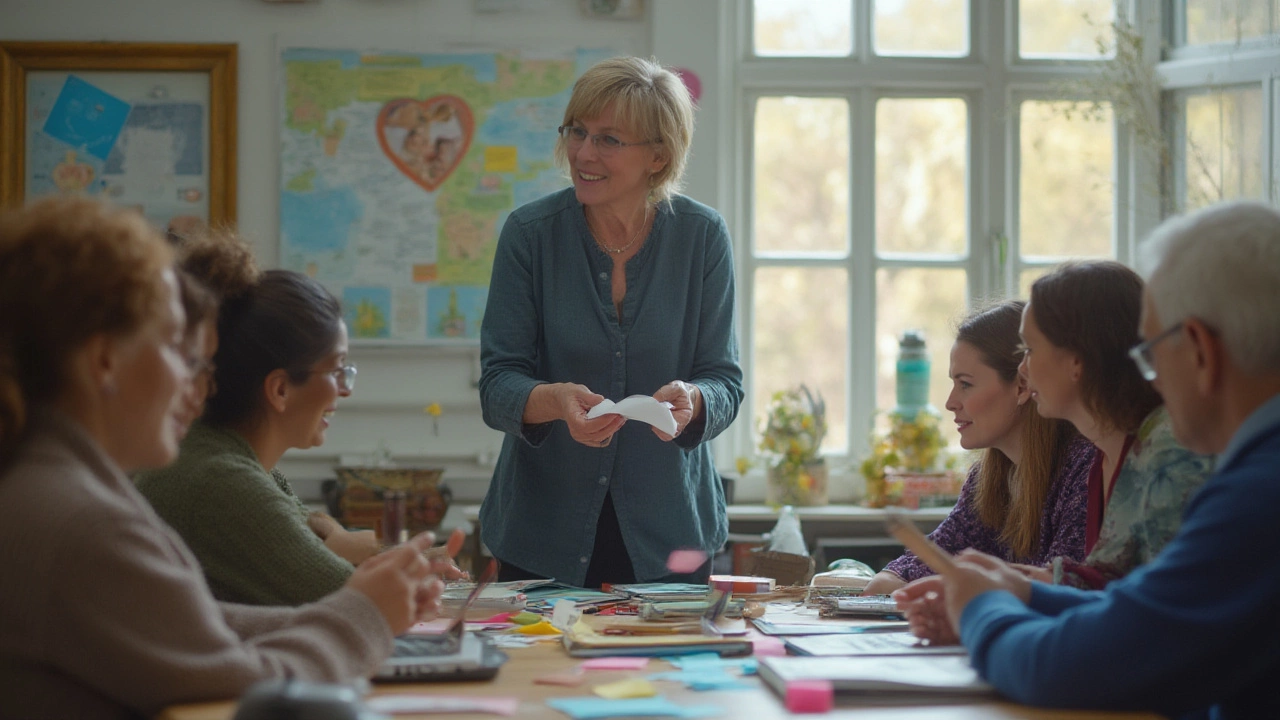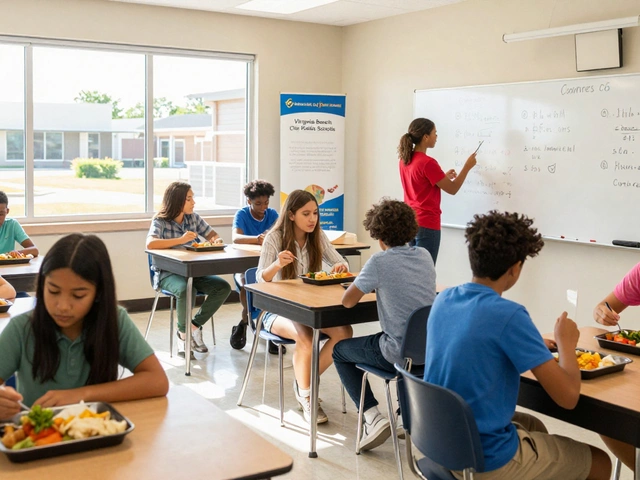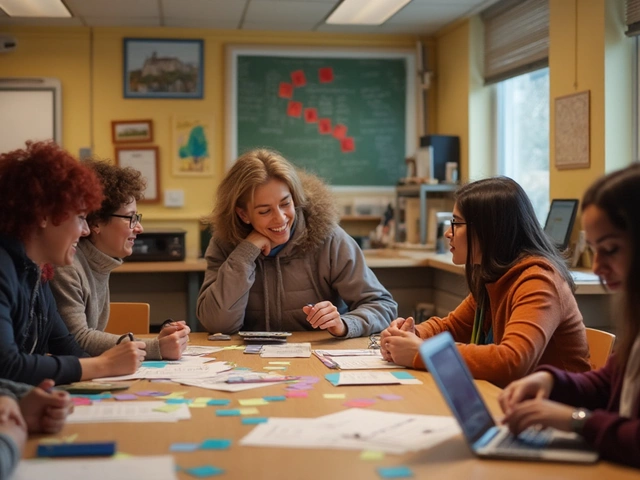Ever notice how adults don’t learn quite like kids? You see it the moment someone picks up a new skill at work or takes a night class after years away from school. It’s not about memorising, rote work, or just following directions—adults crave something practical, something that matters right now. So what’s the secret sauce? Which learning theory really gets through to adults and makes new knowledge stick? Let’s dig in and break it all down.
The Big Players in Adult Learning Theory
Walk into any teacher training or staff development session, and someone will mention something fancy like “andragogy” or “transformative learning.” But which of these theories actually work when you’re trying to cram a new process or tackle online courses after a long day at work? The most cited learning theory for adults comes from Malcolm Knowles, who coined 'andragogy' back in the late 1960s. Unlike traditional children’s education (pedagogy), andragogy is all about how grown-ups approach learning differently. According to Knowles, adults are motivated by relevance, immediate usefulness, and their own experience. They want respect, flexibility, and—most importantly—control over what and how they learn.
Knowles' six principles read like a wish list for any adult who’s juggled work, family, and self-improvement:
- Need to know: Adults want to understand why they should learn something before diving in.
- Experience: They bring a heap of knowledge to the table and want it recognised.
- Self-concept: Give an adult some say, and they’ll take ownership fast.
- Readiness to learn: If it helps their real-life situation, they’re far more interested.
- Orientation to learning: Problem-centred, not content-centred. No one wants fluff.
- Motivation: Internal motivations trump external pressures.
Even with all that, don’t count out other approaches. Jack Mezirow’s transformative learning digs into moments where adults get challenged, rethink what they know, and grow in new directions. Sometimes, it’s less about facts and more about changing perspectives. If someone has a "lightbulb moment"—say, an older worker realising that digital skills are actually within reach—that’s transformative learning in action.
Then there’s experiential learning, made famous by David Kolb. Think job shadowing, on-the-job training, workshops, or practical internships. Kolb laid out a clear cycle: have an experience, reflect on it, conceptualise, then try again. Adults tend to learn best by doing, not by sitting back and watching. Plenty of studies out of workplace training programs back this up—real projects, with real feedback, lead to faster and more lasting skills.
Lately, lifelong learning and self-directed learning (thanks, Alan Tough and others) have taken centre stage. In fact, the National Institute for Adult Continuing Education found in their 2023 report that over 70% of adults prefer learning at their own pace using online materials or independent study, rather than formal classrooms. That’s a massive shift from the teacher-led days of old.
What Really Works for Adult Learners?
If you’ve ever sat through a dull, one-size-fits-all PowerPoint on workplace safety, you know what doesn’t work. Adults learn best when the material is useful right now, not sometime far off. Researchers at Harvard’s Learning Innovations Lab found that adults retain 50% more knowledge if training is tied directly to a specific problem they’re facing at work. This lines up perfectly with Knowles’ orientation-to-learning principle.
Another winning approach? Collaborative learning. Let’s face it—bouncing ideas off others, hearing about real world challenges, and getting feedback from peers makes everything click faster. Online forums, workplace discussion groups, and even informal lunch-and-learns give adults a chance to connect their experience with somebody else’s. “Adults don't just want content, they want connection,” said Dr. Gloria Rogers, a respected adult education researcher.
"We learn best when we’re actively involved, when the learning is social, and when we see the relevance every step of the way." — Dr. Gloria Rogers, Adult Education Researcher
Every person learns differently, sure, but some consistent tips pop up again and again:
- Let adults guide their learning. Give them choices. They’ll rise to it.
- Use real-world problems, not abstract theories. If it matters to their life, they'll engage.
- Tap into their existing knowledge. If they’ve managed a team or fixed a car, that counts as experience worth sharing.
- Plan for reflection. Build in time for adults to think about what they've learned, not just rush onto the next thing.
- Group projects. Sharing perspectives boosts creativity and helps even shy learners participate.
Don’t force adults to sit through endless lectures. Mix it up—a blend of online resources, podcasts, hands-on tasks, and open forums keeps energy high. In a workplace experiment by LinkedIn Learning, employees allowed to mix self-paced digital modules with hands-on practice scored 30% higher on retention tests than those who had classroom-only training.

How to Apply Adult Learning Theory in Real Life
Theory's great, but let’s talk the nuts and bolts. Say you’re training new team leads at work. You could dump a binder on their desk and walk away, but if you want genuine results, try these steps:
- Start with a real problem. Kick things off by asking what challenges they’re facing leading their teams.
- Build on what they know. Encourage sharing of past experiences–maybe someone managed a sports team or volunteers in the community.
- Let them set some learning goals. Give a menu of skills or topics; let each team lead choose what’s most pressing.
- Mix your methods. Combine videos, mini-workshops, roleplay exercises, and written guides. Variety keeps brains happy.
- Encourage ongoing reflection. Use check-ins, quick journaling, or peer feedback to help lessons stick.
- Give them autonomy. Adults appreciate the trust—it pays off in participation and outcomes.
This works for anything from upskilling in tech to community activism workshops. Even learning to code can benefit from this model: adults who direct their path, use forums to share struggles, and tackle real mini-projects typically last longer and do better than those in rigid bootcamps.
And don’t overlook digital tools. The rise of microlearning—think 10-minute videos or mobile quizzes—fits perfectly with busy adult schedules. A 2024 report by Coursera showed completion rates for short, flexible modules were 40% higher among adults over 30 compared to traditional online courses. Why? Because adults want efficient, just-in-time knowledge—nothing more, nothing less.
If you’re designing adult courses or leading staff development, skip the lectures and get people involved. Use case studies, hands-on practice, and open-ended discussion. Watch participation—and results—jump up fast.
Is One Theory the Best? Putting It All Together
If you’ve come here looking for a clear winner—one single best adult learning theory—you might be surprised. In reality, no single theory is king. Andragogy gives a solid base: focus on relevance, respect life experience, and let adults lead the way. But bits of transformative learning, experiential projects, and digital self-direction make today’s best adult education a mix-and-match game.
It’s not about finding a rigid formula. Instead, the key is to tap into the adult learning theory mindset: make it practical, make it flexible, and respect the learner’s experience. Want people to remember what they’ve learned months down the line? Connect it to problems they actually have, offer support but not micro-management, and leave room for reflection as well as lively debate.
The best programs adapt. They might pull from Knowles for foundational strategies, add Kolb’s experience-reflect-adapt cycle, and let learners steer themselves like Tough recommended. Maybe they include elements of Jack Mezirow’s "perspective transformation"—those aha moments when someone’s worldview gets a little bigger.
What matters is the outcome: adults feel valued, gain real skills, and actually want to keep learning. Pretty soon, you notice fewer snoozing heads in seminars, livelier conversations, and yes, real results—whether at work, in online communities, or at the local evening class. Remember, adults aren’t just empty vessels waiting to be filled. They’re active, capable, and smart learners—if you get the theory, and the practice, right.






